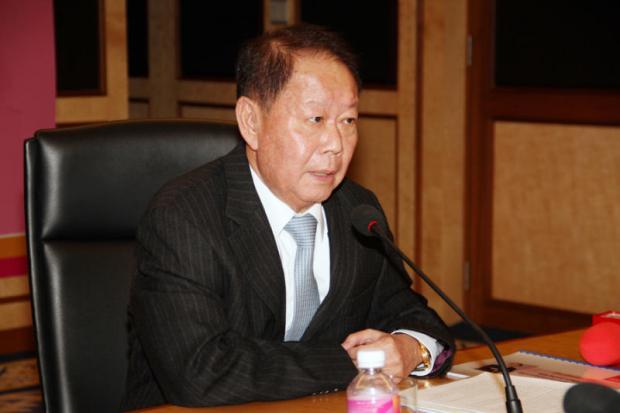Thailand: Land tax tweaked to spur activity
The land and buildings tax to be levied on vacant land will increase by 0.5 percentage points every three years until it is capped at 5%, says Deputy Finance Minister Wisudhi Srisuphan.
The change in taxation is aimed at prompting landlords to use their land. The incremental tax rate will take decades to hit the ceiling, so that land is not left undeveloped up until the 5% rate is charged, Mr Wisudhi said.
In the previous drafts of the bill, a 1% tax was imposed on land left vacant or unused for one to three years, 2% for four to six years and 3% for more than seven years.
The bill on the land and buildings tax is pending the Council of State’s review and will seek approval from the cabinet before going to the National Legislative Assembly for deliberation.
The Finance Ministry has decided to postpone enforcement of the land and buildings tax for one year to 2018 after the Council of State expressed a different view on taxation of unused land. The categories of land under the draft bill are another issue on which the council disagrees with the Finance Ministry’s proposal.
Mr Wisudhi said the ministry wants to make undeveloped land another category to add to the previous three types: agricultural, residential and others.
Sorting out vacant land from others allows differentiation of unused land from land for industrial and commercial uses, which are included in the category of others, he said.
Once in effect, the tax will be levied on first homes and land used for agricultural purposes with appraisal prices starting at 50 million baht, with the rate applied to land value exceeding 50 million baht.
The tax will also apply to second homes on a progressive basis, from 0.03% to 0.30%.
The bill sets ceiling rates of 0.2% of appraisal value for land used for agricultural purposes, 0.5% for residences, 2% for commercial and industrial use and 5% for vacant or undeveloped land.
The land and buildings tax will replace the house and land tax and the local development tax, which have drawn criticism for being regressive and outdated.
The new property tax is aimed at narrowing income disparity, expanding the national taxpayer base, increasing tax income for local administrations and improving land use across the country.
Mr Wisudhi said the Finance Ministry is drafting subordinate laws to fill in the details of the new property tax, including whether to classify condominiums or homes rented to others as commercial or residential property.
The ministry is debating the issue out of concern that landlords might pass the tax burden on to tenants if they are classified as commercial, which is levied at a higher rate than residential.
The ministry also worries that owners of service apartments and homestays could exploit the loophole and pay the rate charged for residential buildings instead of the commercial rate.
Kittipol Pramoj Na Ayudhya, managing director of SET-listed developer Sammakorn Plc, said the new tax rates for vacant or undeveloped land plots show how the government has compromised.
“Resistance from big landlords, most of whom are influential, was so strong that the previous bill could have been revoked,” he said. “The new rates will give them more time to adjust or think about what to do with their land plots, as the economy is unlikely to be solid in the near future.”
With lower rates for vacant or undeveloped land, the bill has a better chance of enactment, Mr Kittipol said.
Source: http://www.bangkokpost.com/business/news/1198213/land-tax-tweaked-to-spur-activity


 Thailand
Thailand




